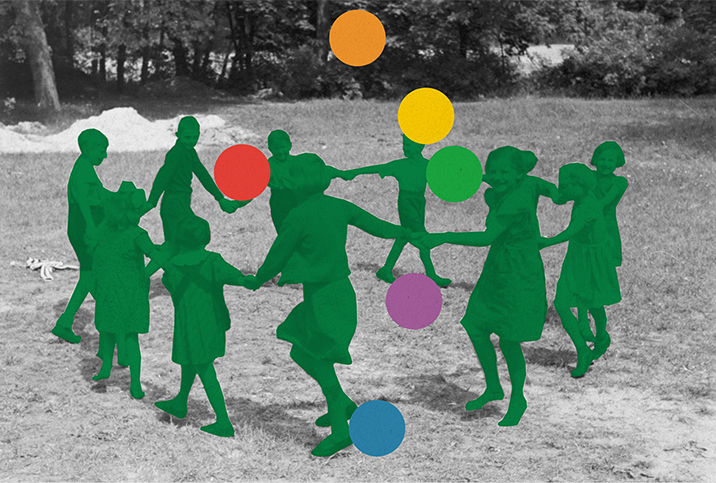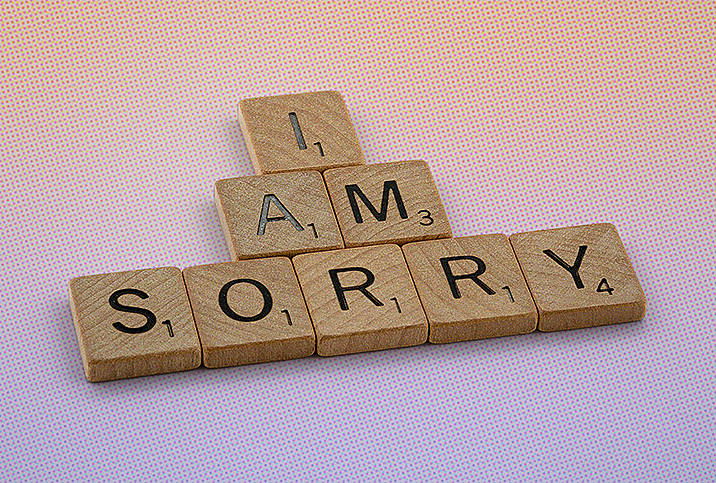Marriage Is Weird

Marriage.
Has there ever been a weightier word so open to interpretation?
Of course, everyone views wedded bliss through their own personal lens. A thrice-divorced dad probably sees getting married in a slightly different way than a young girl in her Disney princess phase. Even in an institutional sense, the definition of marriage varies greatly in interpretation across different cultures and time periods.
Here, we'll take a brief, narrow—and all-too Eurocentric—look at marriage and how we got here. Then we'll see how some forward-thinking people are repurposing this ancient institution and taking it into the future.
A brief history of marriage
Modern marriage and our feelings about it are complex, in part, because they stem from competing concepts: pair-bonding and property ownership.
Paleontologists have found plenty of evidence that some prehistoric humans formed pair bonds, likely to focus on procreation and to offer mutual protection from external harm. With the rise of agriculture and animal husbandry, humans produced surplus food and had time to manufacture products, unlike their hunter-gatherer forebears who struggled to survive daily. With surplus food and products came property, and with property came wealth and the subsequent desire to protect and grow that wealth. Thus, marriage came about as a way for individuals to instantly increase property and security by combining their wealth with a partner's.
"The institution of marriage is relatively new in the grand scheme of things," said Natalie Finegood Goldberg, L.M.F.T., a Los Angeles-based sex therapist and psychotherapist. "'You've got 10 sheep, and I've got 10 cows. Let's get together and we can both have clothes and milk.' So this version of marriage is really new. And I think given the divorce rate, it's not that effective for a lot of people."
In the face of dissatisfaction with what many see as the stifling and outdated strictures of traditional marriage, lots of people are considering new possibilities—and potentially healthier ones—in how they approach partnered life.
"I'm a really big proponent of 'Your marriage can look like whatever you want it to look like because it's yours,'" Finegood Goldberg continued. "There are no 'shoulds' here. The only 'should' is that ideally, the two of you agree—or the three of you or however many."
A few innovative marriage arrangements in particular are gaining popularity.
Parenting marriages
As much as parents of a certain generation may have thought they could hide their dissatisfaction with their marriage and stay together to "protect the children," kids are rarely fooled for long. What's more, it appears that just biting the bullet and splitting up may result in happier, healthier kids.
"Most of the research is pointing to kids that come from divorced families that are not high-conflict divorces do just as fine if not better than kids who come from families where there was high conflict but not divorce," Finegood Goldberg said.
Some modern folks are even carving out a third path: parenting marriages.
These types of arrangements take the old trope of "staying together for the kids" and turn it on its head. Rather than putting on a brave face for the children and pretending to still be a loving couple, the parents separate romantically but stay together domestically, part of the time at least.
One iteration is when parents decide they no longer want a romantic relationship with each other and agree to part amicably, yet trade off time in the same house. The complete family may even have some evening meals together or otherwise spend time as a unit before Mom or Dad leaves for the night.
"Maybe the parents leave instead of the kids," said Kelifern Pomeranz, Psy.D., C.S.T., a licensed clinical psychologist in the San Francisco Bay area. "So instead of having the parents move to individual houses and having the kids go back and forth, the parent might leave instead so the kids can stay in a stable house. It's incredibly complicated for the parents, logistically and financially, so it has its downsides. But it's interesting to think there might be other models or ways of doing things."
Separate spaces
Some couples have successfully created relationships where they are partners in everything but cohabitation.
Pomeranz mentioned a couple she knows who have an arrangement similar to what famed artists Frida Kahlo and Diego Rivera had: partners but living in houses next door to each other. Finegood Goldberg has a friend whose parents have a similar setup.
"They were living together, and it was awful," Finegood Goldberg said. "And they separated and got separate houses. And started dating again. They were like, 'Wow, we just do so much better when we have our own living spaces.' It very well could be that a partner makes a really great partner but they're a terrible roommate."
Multipass
Finegood Goldberg ran into another intriguing setup involving each partner having a prearranged chunk of time to do their own thing, separate from their partner and kids.
"I've encountered families where each parent gets like a month pass where they can go away and travel and do whatever they want," she said. "I was actually traveling and I encountered a guy who told me, 'Yeah, this is my one month per year. I get one month, and my wife gets one month, and we each go do our own thing.'"
The marriage might be considered "open" during that designated month, or the time simply may be spent recharging away from the duties of family and partnership.
Absence makes the heart grow fonder, right?
Monogamish
More and more, we see polyamorous or open relationships entering public discourse. But another interesting arrangement touches on Finegood Goldberg's dictum of defining your own marriage: being "monogamish."
By maturely and openly laying out rules, some couples enjoy the stability and emotional security of having a partner but still sexually explore separately or together with other partners.
"There's a lot of monogamish situations," Finegood Goldberg said. "In terms of like, 'We are partners, you are my person,' but then there are exceptions. For some people, that means strip clubs are fine. For some people, if it's a sex worker, it's fine. I'd say there are different levels of comfort."
It's important to consider that these types of arrangements may require some finesse and extra care, perhaps even counseling—and, obviously, they're not for everyone. The crucial component is to be honest with not only your partner but also yourself about what you really want.
"What I've witnessed is there's a lot of people who participate begrudgingly," Finegood Goldberg said. "They do it because they feel like they have to in order to keep this person, and that never ends well. There's a term in the kink or poly community called 'compersion.' It's this concept of gaining pleasure out of witnessing your partner's pleasure. I think it takes very secure individuals. If you struggle with jealousy, it's going to be really hard."
Love is a many-splendored thing, as someone once sang. Or made into a movie, maybe.
Perhaps it's high time people take back control from hoary religious practices and outdated financial arrangements and redefine for themselves what it means to be someone's partner.
I'll tell you what: You can keep all your sheep and cows as long as we can be supportive and healthy and happy together. Deal?


















